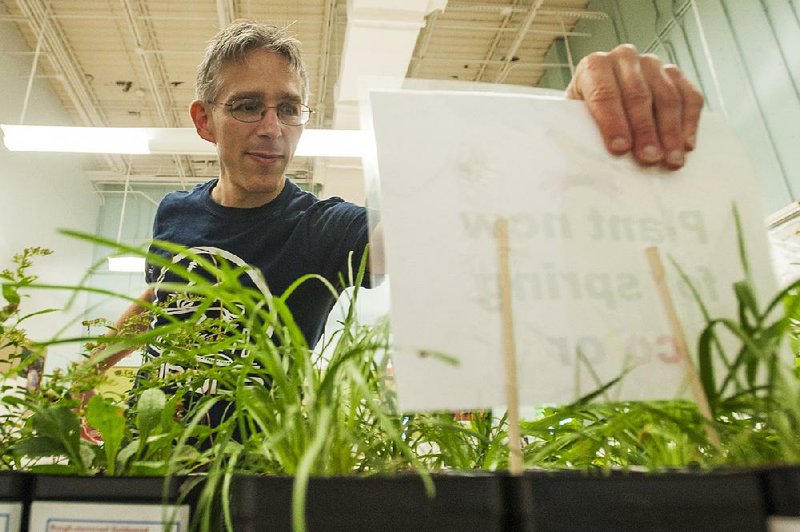Climate change won't bode well for Arkansas birds, a new report from the Audubon Society has found.
But there's still time to save most of the birds through environmentally friendly actions, the group says.
The report said 389 of the 604 North American bird species are at risk of extinction from climate change if temperatures rise 3 degrees Celsius, or 5.4 degrees Fahrenheit, above preindustrial levels.
That temperature rise is a projection of "without substantial climate change mitigation," such as increased investment in renewable energies, making energy use more efficient or using more public transportation, said Dan Scheiman, bird conservation director at Audubon Arkansas.
Scheiman has been with Audubon Arkansas for 14 years because he says he loves birds. A 3-degree Celsius warming would "turn Arkansas on its axis," he said.
"This is rapid change caused by humans, and it's up to us to do something about it," he added.
Under a 5.4-degree Fahrenheit warming, 32 of Arkansas' 125 summer bird species would stand to lose more of their range in Arkansas than they would gain, the report states.
Warming of 2.7 degrees Fahrenheit is more of a best-case scenario, Scheiman said. In that case, 17 species would be vulnerable during the summertime.
Several states' official state bird species are among those threatened in their own states, according to the report. Those include Pennsylvania's ruffed grouse, Minnesota's common loon and California's California quail.
Outside experts said the study's methods in projecting shifting bird ranges and other climate threats are reasonable, but it can be difficult to predict how bird species might be able to adapt to hotter climates.
"There's a lot we don't know about how certain species might adapt to novel climate conditions," Benjamin Zuckerberg, an associate professor in the Department of Forest and Wildlife Ecology at the University of Wisconsin-Madison, told The New York Times. "We might see bird species shifting their nesting times or changing their diet."
But, he added, "there is a real concern that the rate of climate change is going to be beyond the ability of many species to adapt."
Bird migration patterns could change in a warming climate, Scheiman said.
Birds south of Arkansas could move into the state as Arkansas birds move north, he said. Migration is easier for birds, he said. Plants and insects that can't move like that, he said, will die.
"We're probably going to see ecosystems change in major ways, and that's going to affect all different organisms in our environment," he said. "It's going to be a whole new landscape out there."
Audubon Arkansas is already working to reduce carbon dioxide emissions that have contributed to climate change.
It is helping farmers grow native crops and grasses, Scheiman said. They're environmentally friendly and climate-change resistant, according to Audubon Arkansas' website.
Also, individuals can plant trees and plants to soak up carbon dioxide, Scheiman said.
Preserving and enhancing wetlands and grasslands, which absorb considerable carbon dioxide, also can make a difference, he said.
Scheiman is optimistic about expanding solar power in Arkansas as a replacement for fossil fuels that emit carbon dioxide during energy production.
Audubon Arkansas and others lobbied for a bill passed by the Arkansas Legislature earlier this year to make producing and selling solar electricity easier for people, he said. They are considering another bill that he said would allow, for example, individuals who produce solar energy for their homes to sell excess electricity into the public power grid at fairer rates.
Utilities are challenging the rates those producers can get, arguing that they unfairly fail to account for the cost of utilities' accepting the power.
Solar projects have expanded in Arkansas on a utility scale and at individual homes and businesses, and experts expect that to continue. That's despite the impending end of a federal solar power tax break.
Entergy Arkansas has proposed shutting down the state's two largest coal-generated power plants, which lack modern environmental controls to reduce carbon dioxide or other emissions, by the end of the next decade. That proposal has not been approved.
Arkansas Attorney General Leslie Rutledge has ordered an investigation into the proposal's potential impact on utility ratepayers.
Metro on 10/13/2019

